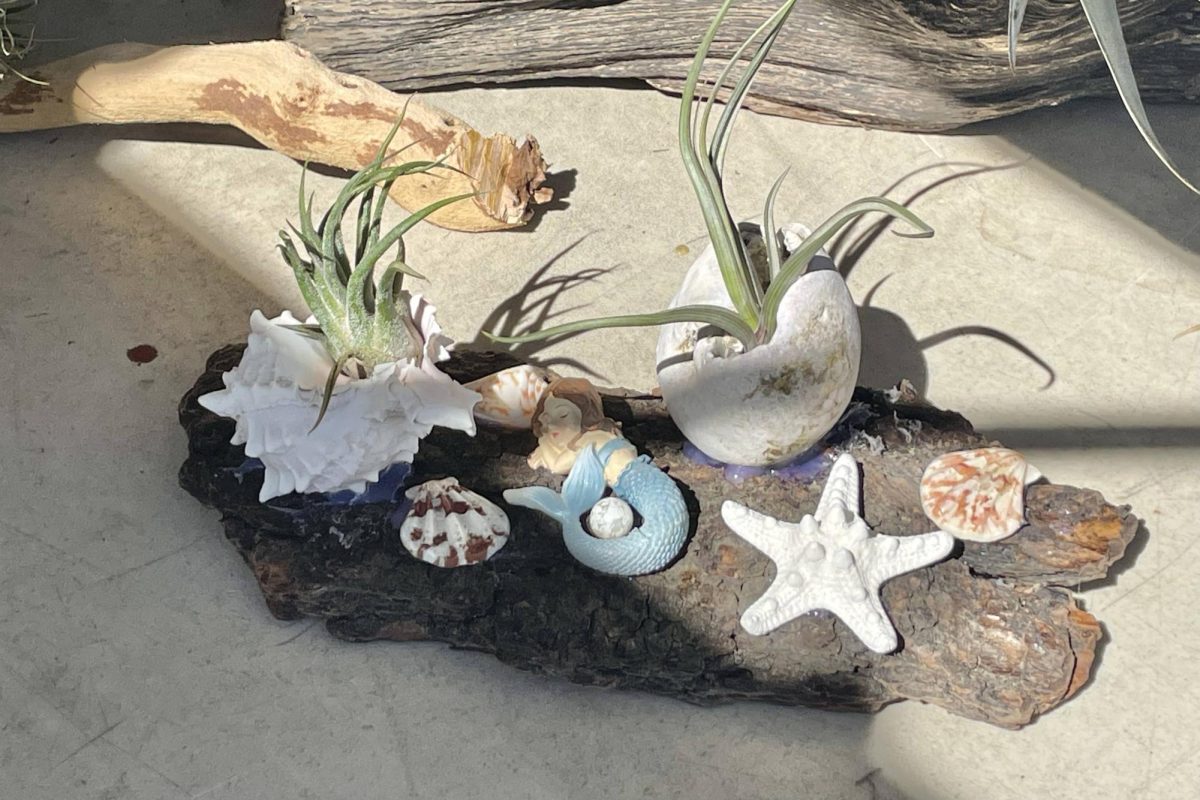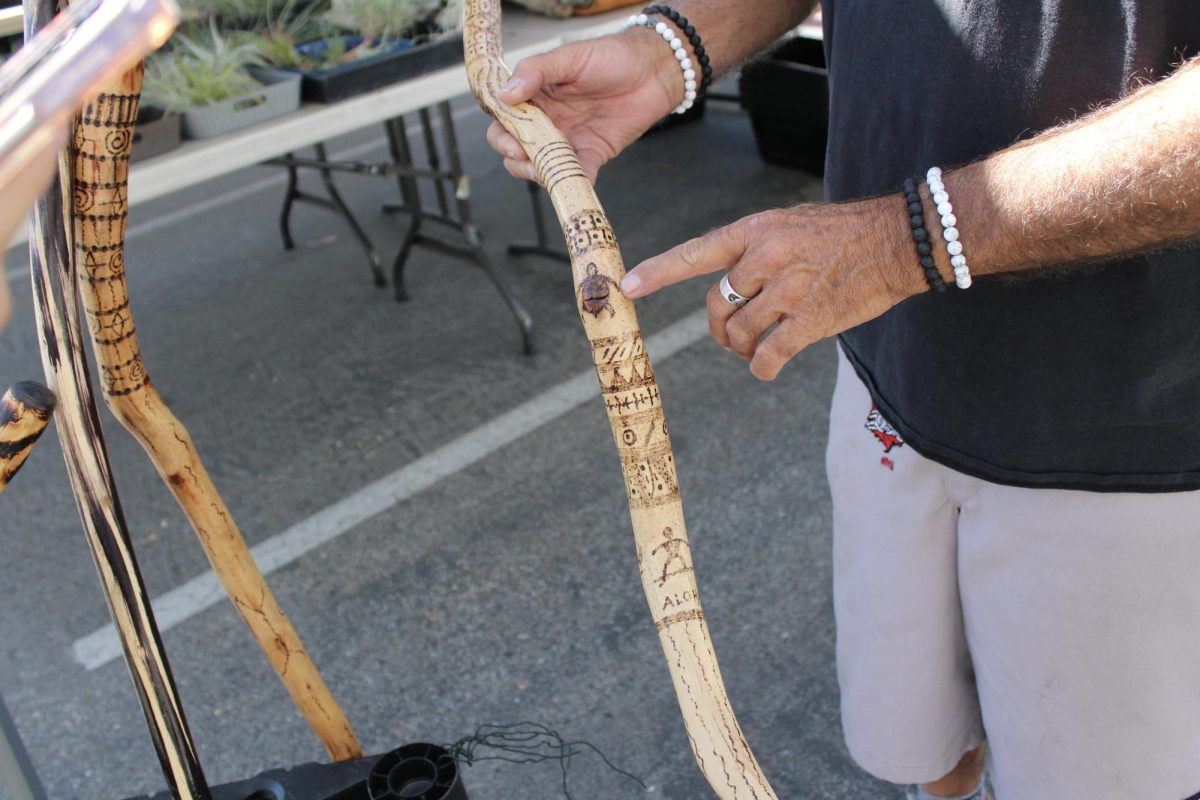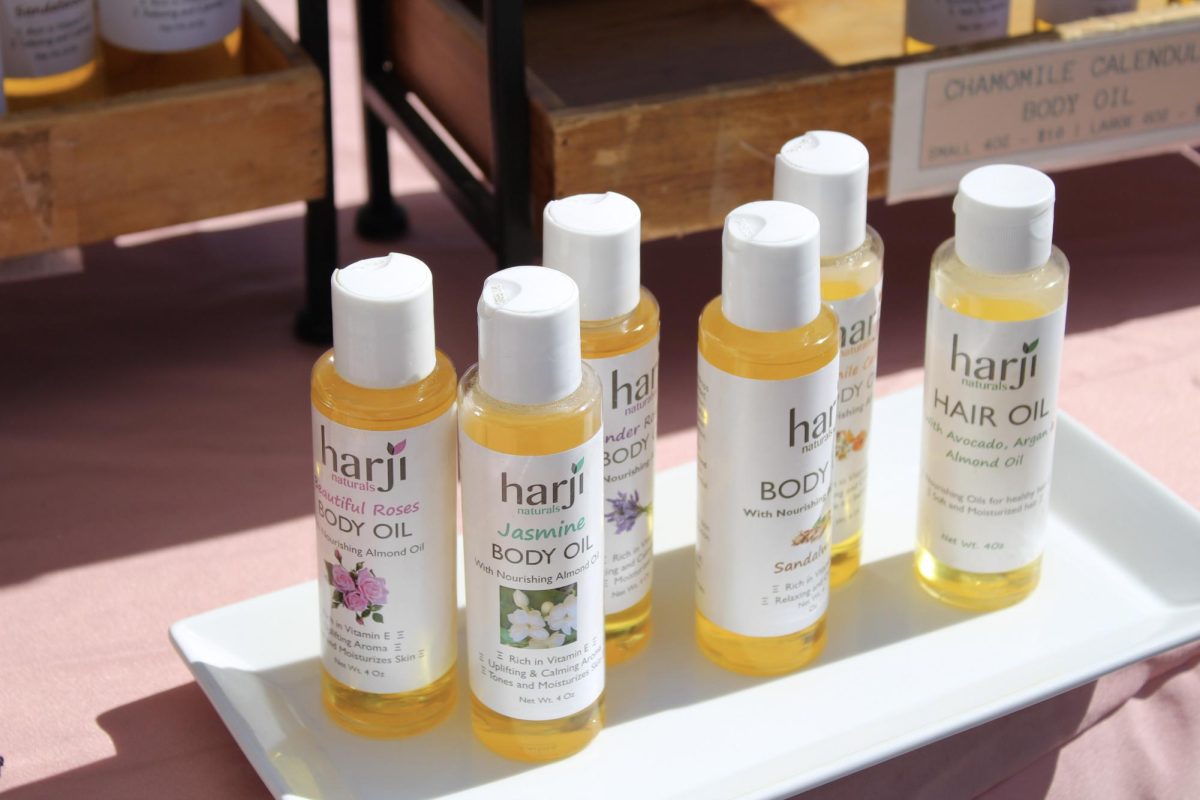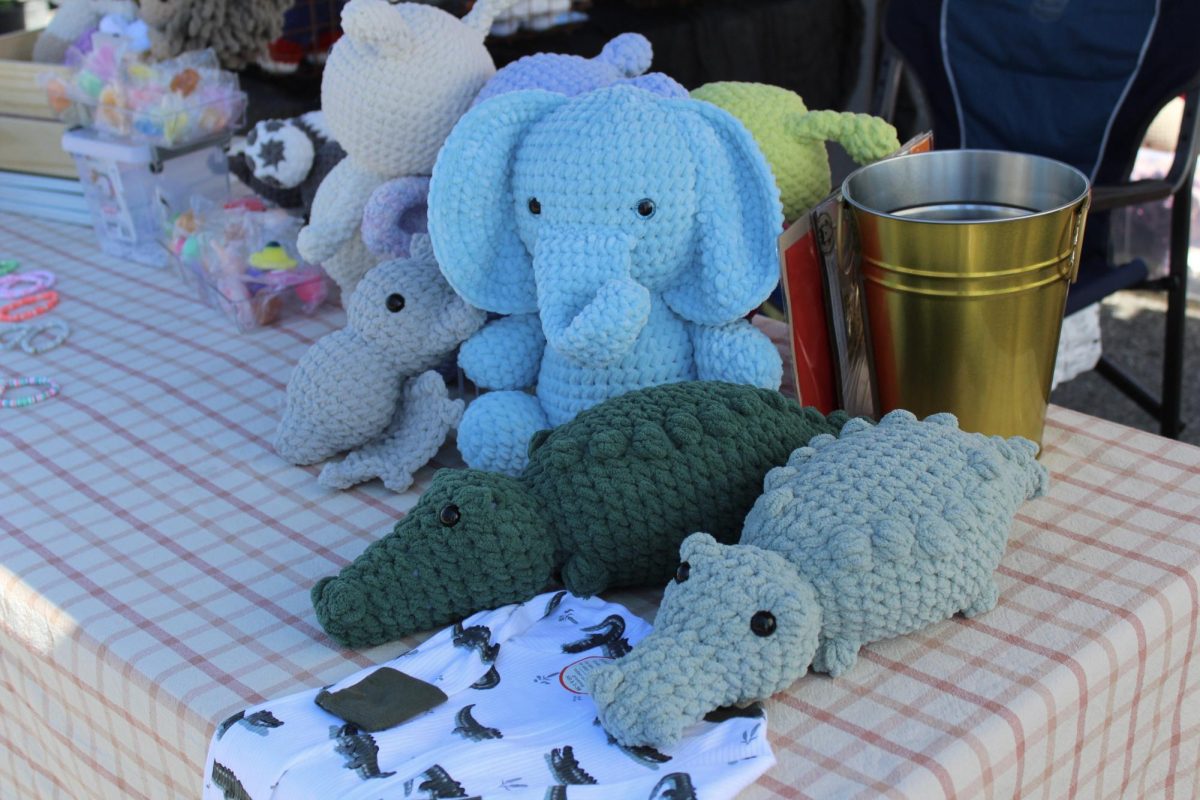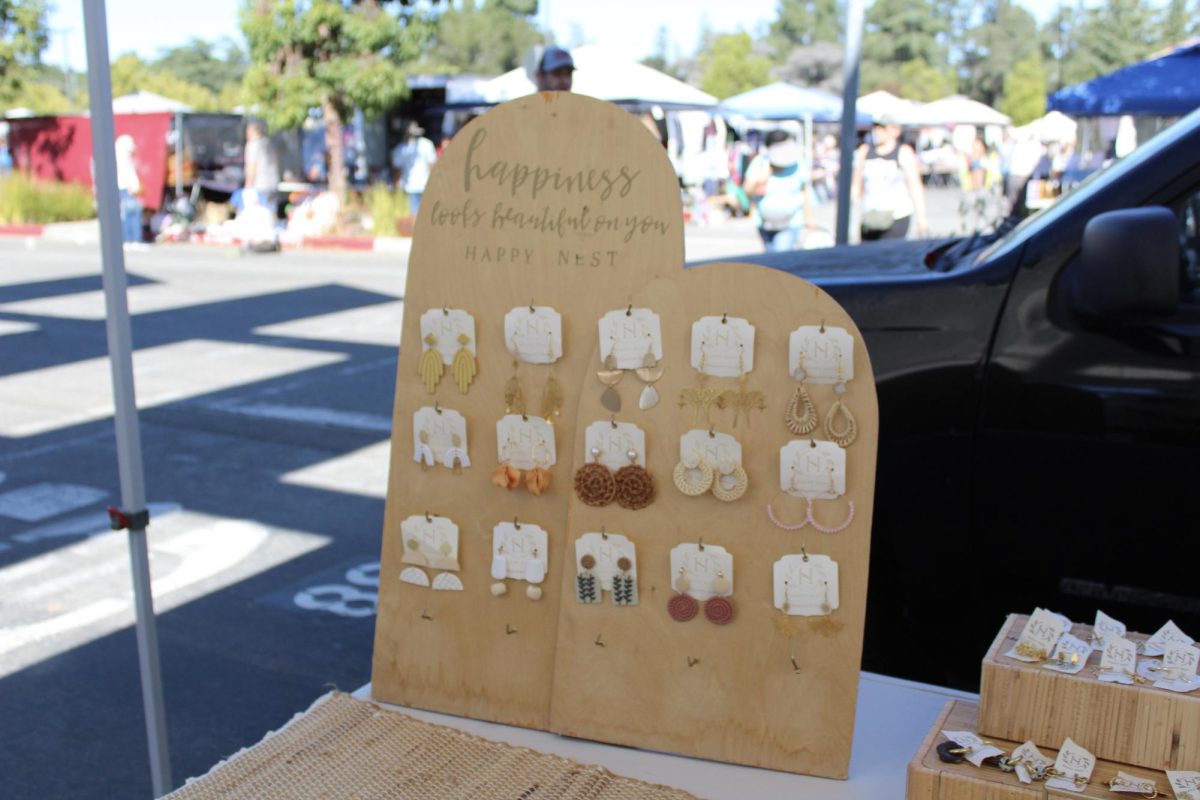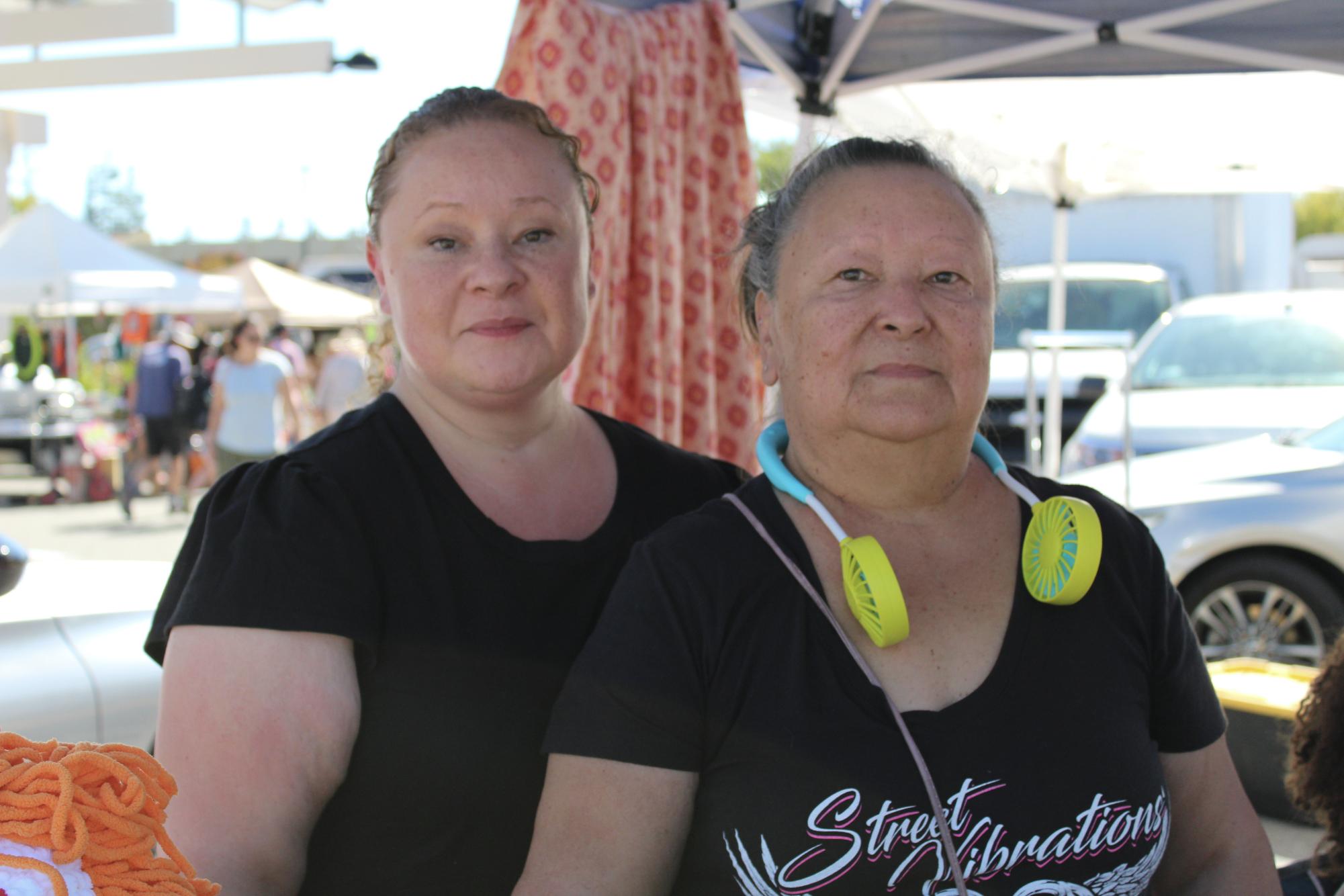
The humans behind the De Anza Flea Market
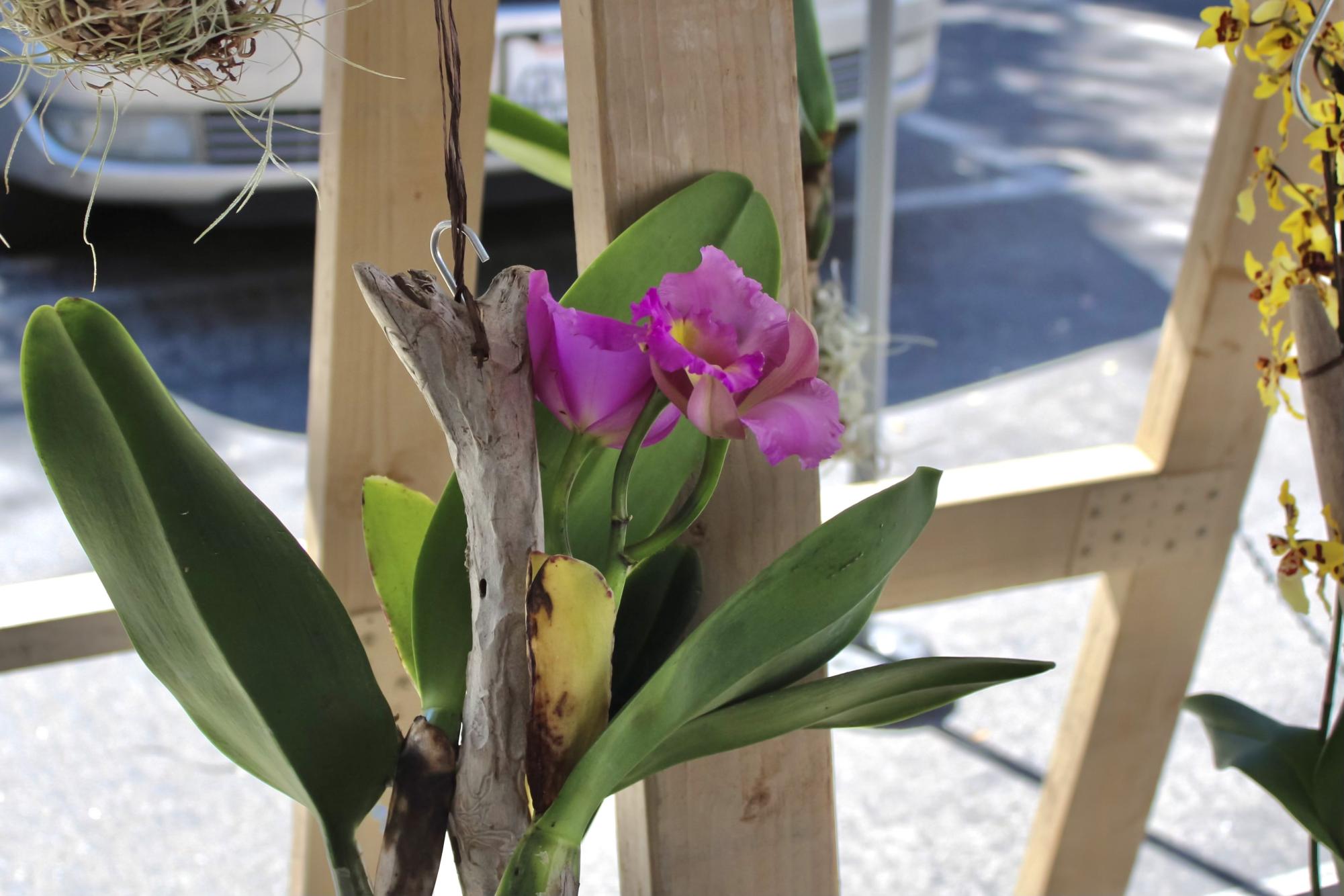
When Ramona Bernardo was gifted an orchid on a piece of wood seven years ago, she expected it to meet the same fate as the miniature roses she often received on birthdays: dead within a couple of weeks.
Now, Bernardo likens her house to a scene from “Jumanji,” overflowing with hanging plants and flowers on every wall and surface.
“After that, I was very intrigued, because most plants are in pots,” Bernardo said. “And then, in digging up and looking through and talking to people, [we found] that orchids actually grow on rocks and mountains and trees, they don’t grow in pots. So we started — as a family — doing more and more, bringing [the plants] back to [their] origin.”
After importing her orchids from Hawaii, Bernardo takes a week to clean them and acclimate them to the dry California environment before matching each plant with wood provided by her ex-husband, Jeff “Shaka” Harris. Bernardo takes pride in selling cattleyas because of their rarity — she wants her products to be “original, [not] just the flowers you can buy from Trader Joe’s.”
To Bernardo, RC LiveArt is more of a hobby than a job. Matching the plants challenges her to preserve both their natural aesthetic and unusual qualities, but she also sees it as an outlet to relax. Ultimately, Bernardo hopes her products will do the same for her customers.
“I want them to enjoy what I enjoy,” Bernardo said. “I’ve seen my plants multiply, [and] even though the flower might fall off, they keep coming back and growing. They bring such pleasure. I go out and sit in the garden and just look at them and play with them — it’s a stress release, and we’re in a very stressful world right now.”
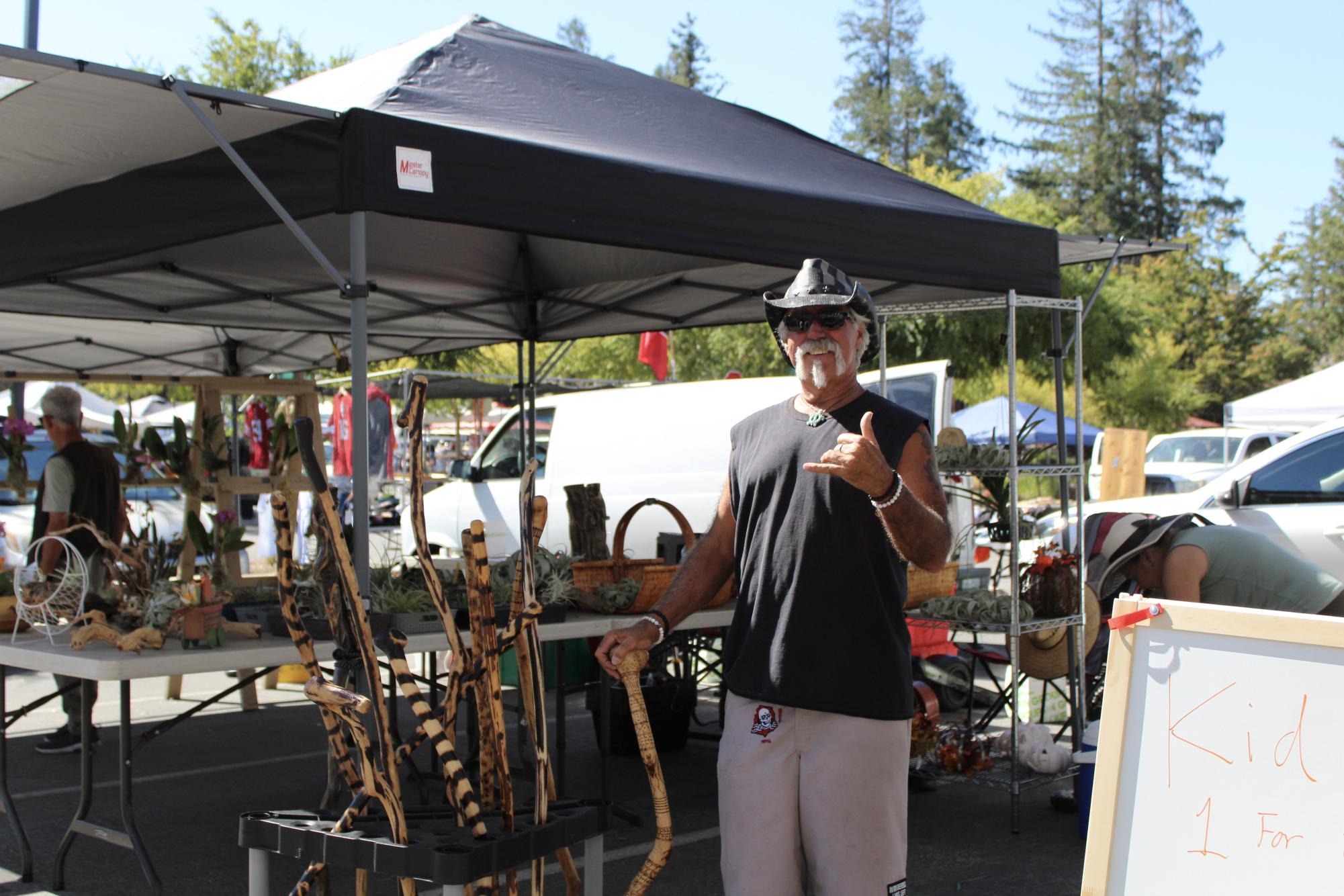
In the same stall as RC LiveArt, Harris sells eucalyptus and driftwood canes, a hobby originating from a two-year-period in which he was unable to walk due to his sciatica and arthritis. His canes often feature distinctive designs: some have duck heads, worms carved the wave patterns on another, and his favorite is island-themed, patterned with turtles and whale tails.
“I’m not out to make a lot of money on it,” Harris said. “I just [do it] when I’m bored and [when] I’m not surfing [or] working, I’m doing this. The hills behind my house up in Pacifica or the different beaches I like to go to — Salinas was really fun, I like going there — it’s just an adventure, going to get [the wood].”
The canes helped him walk, and now Harris sculpts them as a hobby, stripping the bark with a grinder before burning and staining the designs. While not a lucrative business, Harris reflects on the experiences that make it worthwhile. Earlier in the day, a previous customer thanked him for the cane that had saved his life — he had been sliding off a cliff, and used the cane to catch himself on a tree.
“That’s why I do it,” Harris said. “I’m a veteran, so I take them to the veterans’ hospital, give [the canes] to them and then I sell them to other people [to] make the money so I can make them again. So I like it [and] I’ve rehabbed a lot of people.”
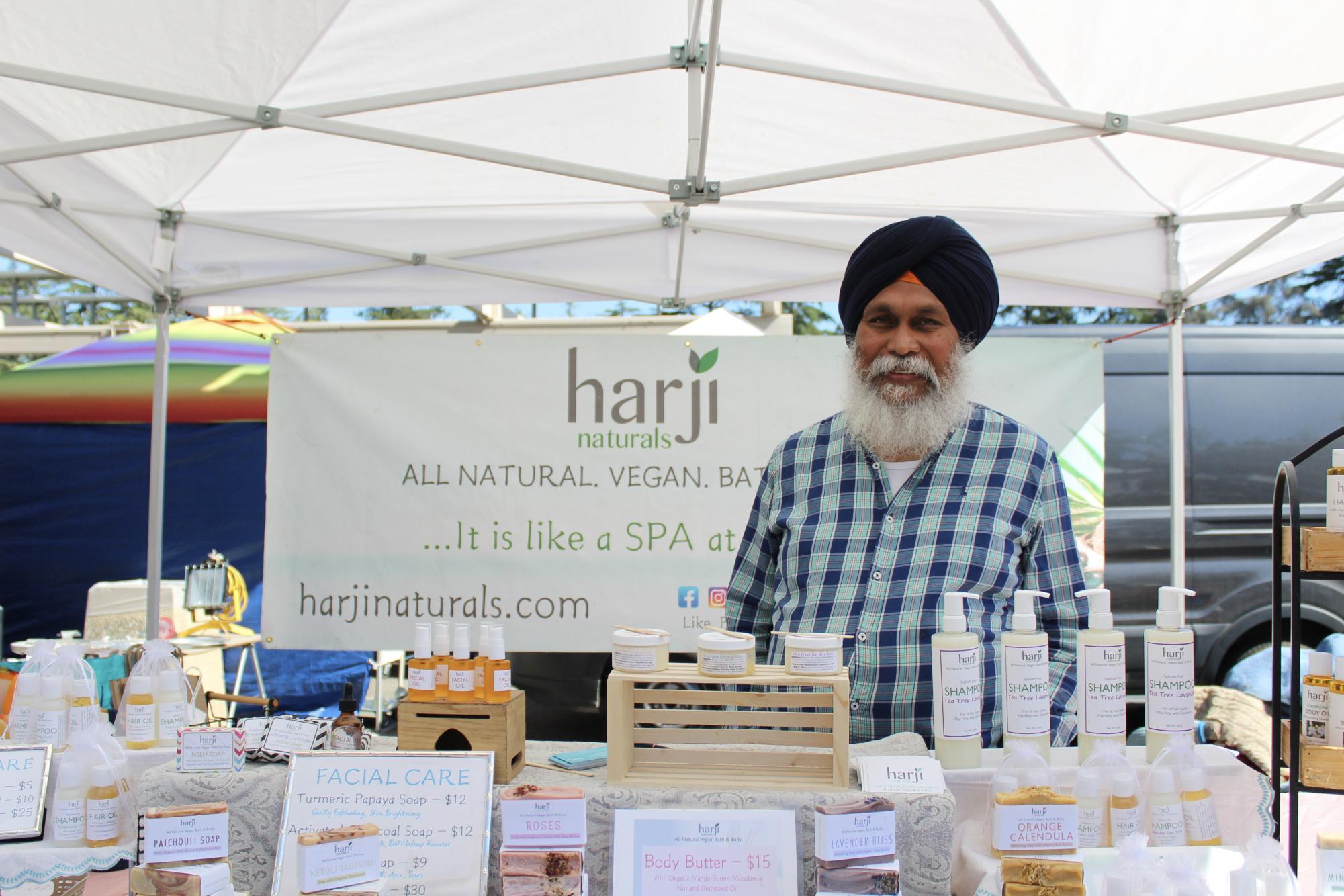
Taking inspiration from the struggles her children had with eczema growing up, Gurinder Singh’s wife created the business Harji Naturals, which Singh represented at the flea market on Oct. 8. The business sells various creams, soaps, shampoos and deodorants at the flea market, and all products are organic and cruelty-free.
“She started making some base that helped eczema, [and that] became deodorant,” Singh said. “And from there we started with soaps, because we found that the chemicals in the soaps off the shelf in the market have harmful chemicals, which we don’t even understand the compositions [of] and they trigger eczema.”
The business started small but quickly expanded, now incorporating the couple and their eldest daughter in the production and marketing processes. Singh states how the family has converted their second kitchen into a makeshift factory for their business, with a majority of the products being entirely handmade. However, hand-making products comes with trial and error, and Singh states how he and his wife had to experiment with multiple versions before creating their finalized products.
“We went through 14 different iterations of the deodorant because [during] summer, it used to melt away and in winter, it used to become rock solid, so we had to figure out that balance,” Singh said. “Similarly [with] the shampoo that we redistribute from external vendors, we experimented with a number of vendors and tested on ourselves before bringing into the market. Once we received [a] positive response from the customer, we didn’t change it.”
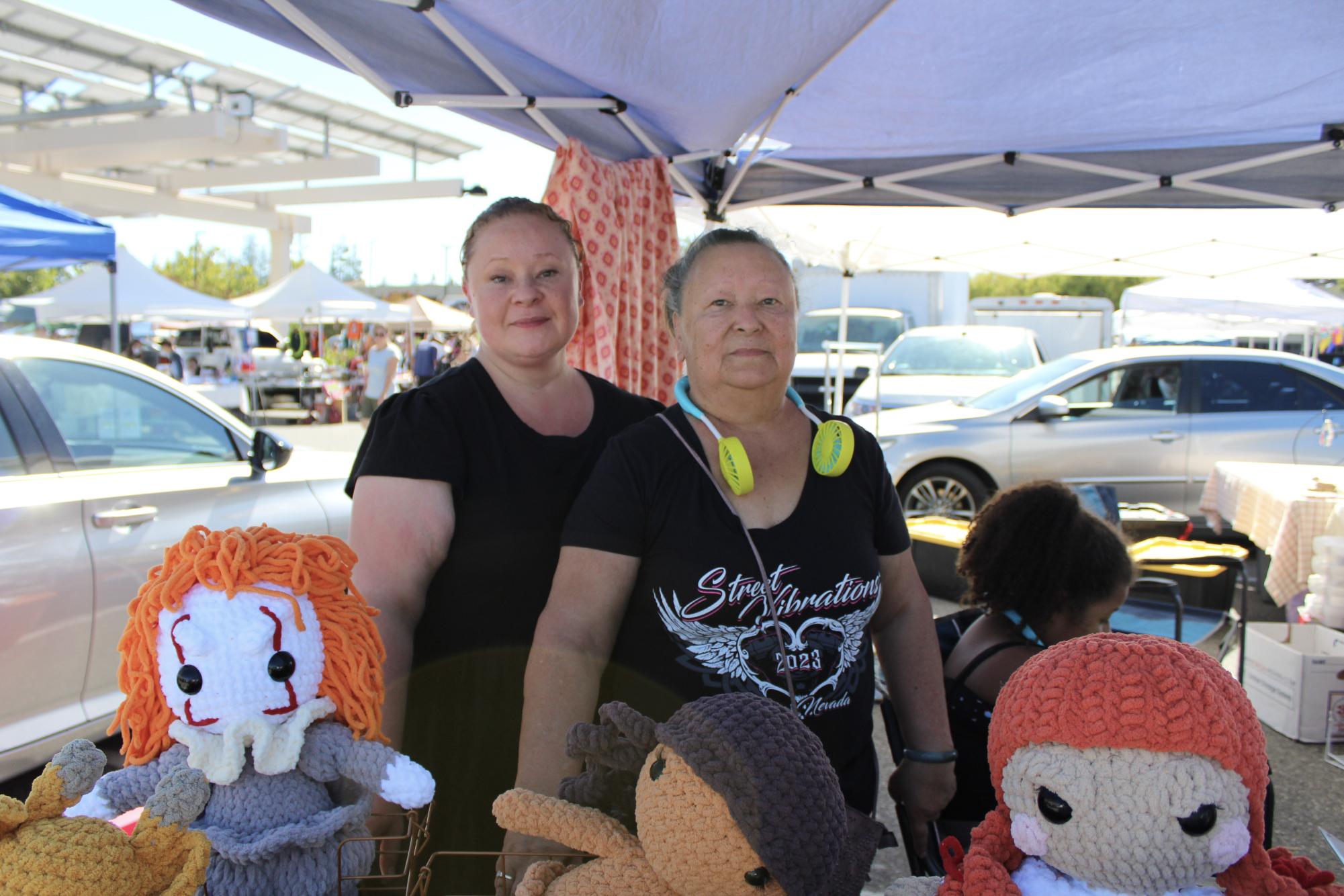
Rosie’s Odds and Inns began as a mother-daughter business, with Rosie Vargas creating pens and keychains and her daughter, Malinda Vargas, crocheting dolls. As time went on, the business grew to include Malinda’s 10-year-old daughter as well, as she created bracelets to sell at the market. Malinda reflects on her process behind learning how to crochet, crediting her grandmother as her teacher.
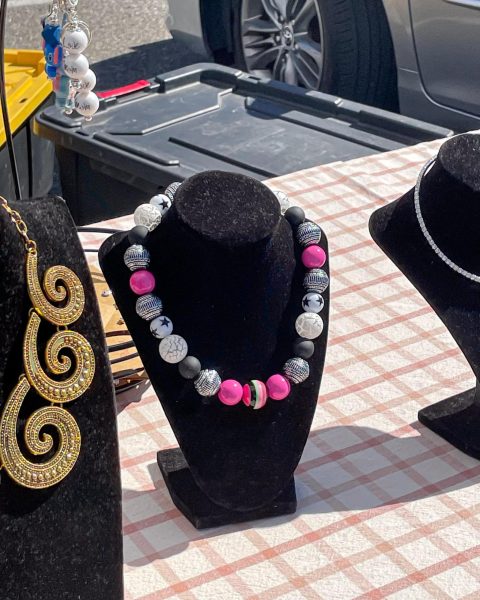
“When I was younger, my grandmother taught me how to crochet, but she had really bad arthritis,” Malinda said. “The worst you could think of, that’s as bad as it was. So she taught me and that’s how I spent my summers and I appreciate that time. And then I went to nursing school years later, and it was a stress reliever. So I just started and started and then I just started making my own patterns, because I didn’t know how to read patterns.”
Rosie also discusses her daughter’s talent, stating how Malinda could use pictures as references for her dolls. She goes on to discuss her contributions to the business, which primarily consists of varied collectibles.
“I make jewelry to sell, [as well as] pens, pins and different knickknacks,” Rosie said. “[I get my supplies] on different Etsy or different websites, beads designs, and then [I] just put them together and I make keychains and I made this necklace.”
According to Malinda, the business is meant to give back to the community. She states how her fulfillment comes from seeing others cherishing her creations, particularly when kids or grandparents find joy in the plushies. However, she also laments on the creative process, stating how it can be difficult to balance her perfectionism with what is acceptable to sell.
“I lacked confidence,” Malinda said. “Like I’ll make it and then I’ll toss it [because] I don’t think it looks good. And then my mom will be like, ‘What you don’t like, the customers like.’ It happens all the time — like, I just don’t like [something], and that’d be the first seller. And the next person would [be] like ‘oh, I wanted one just like it.’”
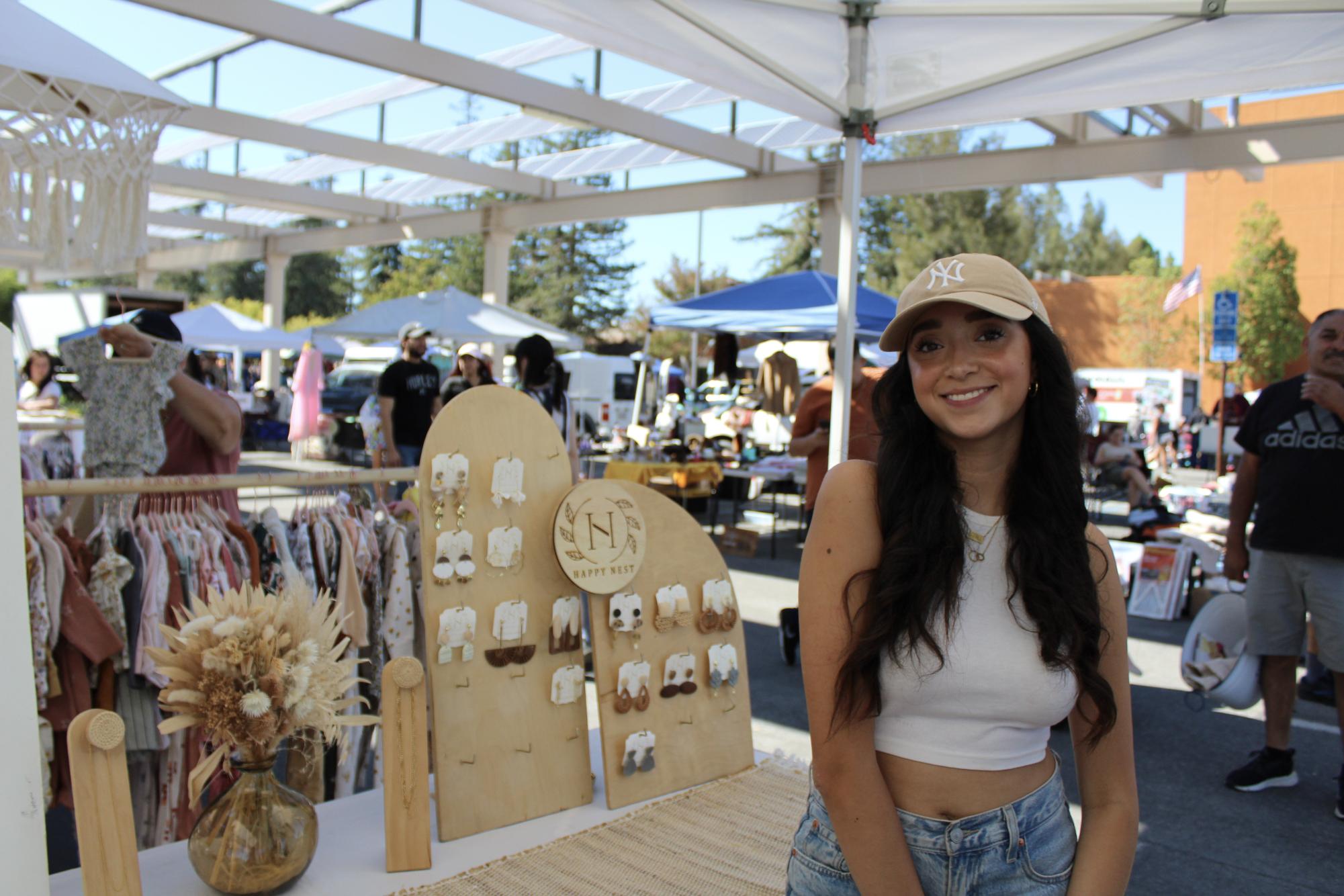
Irie Ramirez and her mother, Nidia Magdaleno, co-founded Happy Nest, a local jewelry boutique that specializes in handmade earrings, when Ramirez was in middle school. Happy Nest’s name encapsulates the partnership that has driven it since 2019 — “happy” is derived from the meaning of Ramirez’s first name and “nest” from Magdaleno’s.
“I’ve always really liked clay and putting my hands to something, even if it was just coloring or painting,” Ramirez said. “And my mom’s a big earring person. She loves fashion and she’s always wanted to be a designer, and then she started designing earrings. She’s more of a designer and I’m more of a maker, so we both got to do what we like.”
Many of Happy Nest’s earring designs are inspired by Pinterest or customer suggestions. To execute Magdaleno’s vision, Ramirez typically assembles earrings from materials such as clay and metal pieces purchased from other small businesses. Magdaleno also sources hats, necklaces and gold pieces to distribute.
With its unique range of materials, such as clay, wood and resin, Ramirez says Happy Nest has jewelry for everyone. While the boutique is based in Salinas, Ramirez and Magdeleno sell their pieces at pop-ups across the Bay Area, sometimes traveling as far as Napa. From starting their business during the pandemic to today, Ramirez reflects on the development of Happy Nest over the years.
“[COVID-19] in general was a hard time, but we had a lot of help from our community and support from people,” Ramirez said. “So even through those tough times, we still had people reaching out to buy [our products] and helping out and supporting [us]. That was a hard part but we got through it and everything turned out good.”




